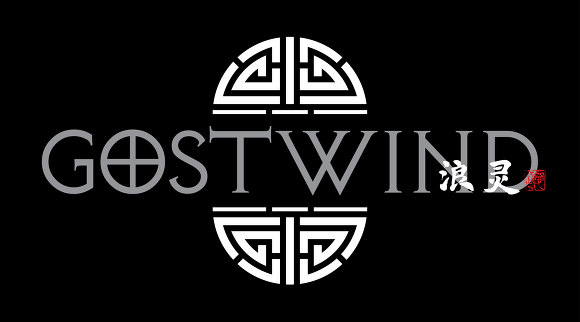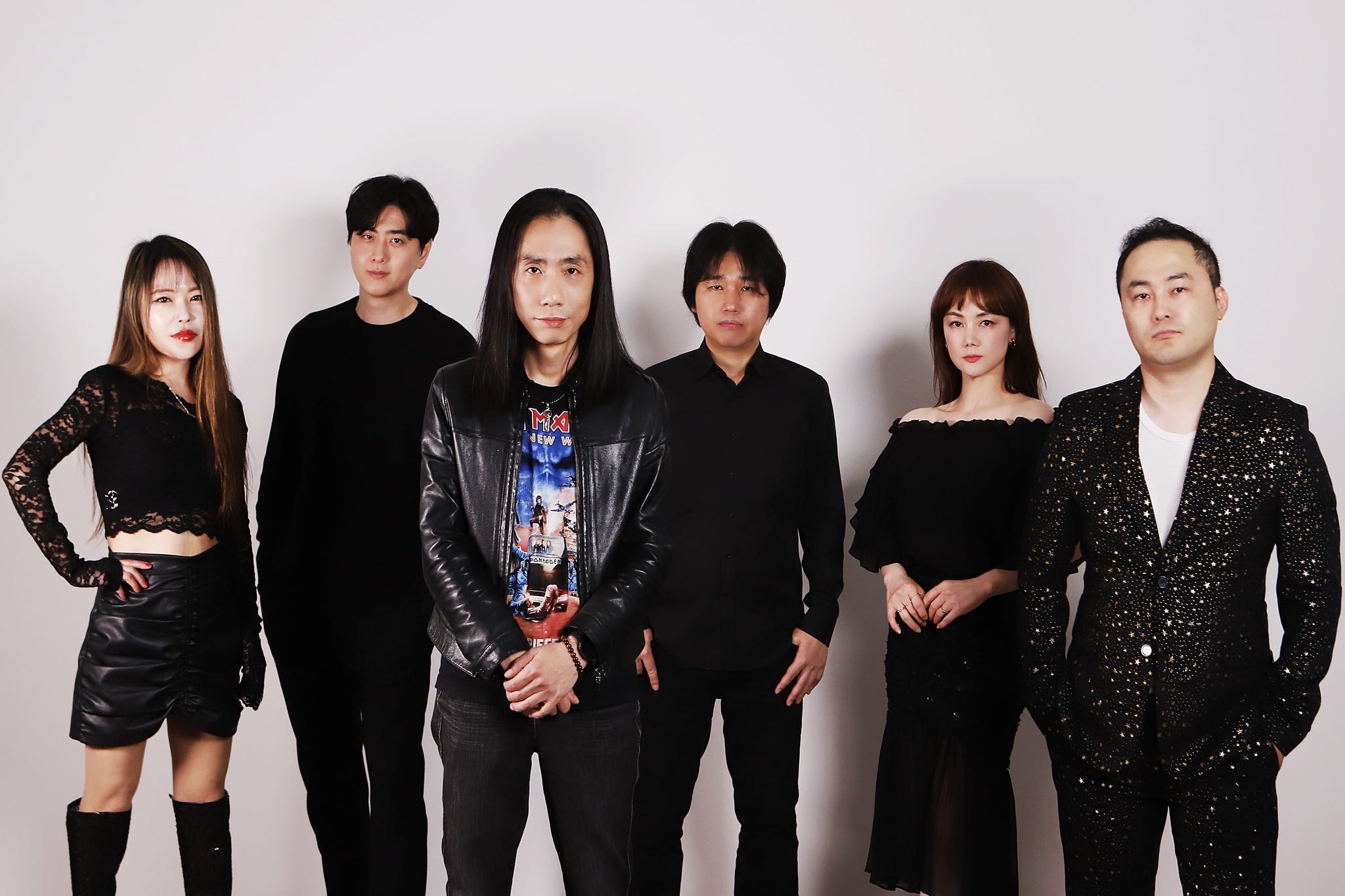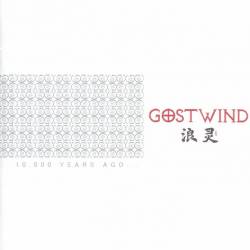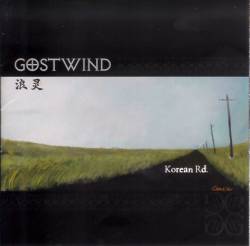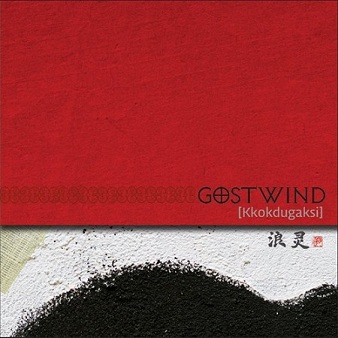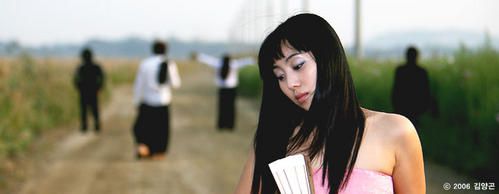-
Par kluseba le 30 Septembre 2013 à 07:27
Gostwind est un groupe de trois musiciennes et trois musiciens sud-coréens qui combinent une multitude de genres de la musique classique avec des éléments de rock et de métal et des textes inspirés de légendes et contes de leur pays lors de la période Joseon entre 1392 et 1910. Le groupe emploie deux instruments rares dans leurs compositions: le daegeum qui est une sorte de flûte de bambou transversale et le haegeum qui est un vieil instrument à cordes ressemblant à un violon. En Corée du Sud, il n’y a que quelques cours spécialisés offerts à certains collèges et quelques universités pour apprendre à jouer ces instruments, mais il était important pour le groupe de créer un fond de musique authentique et traditionnel qui allait accompagner les textes culturels et historiques.
J’ai rencontré le batteur, compositeur et chef du groupe Ryoo Keun-Sang pour obtenir plus de détails sur son groupe qui fêtera son dixième anniversaire l’année prochaine. Gostwind vient tout juste de sortir son troisième album «Kkokdugaksi» dont le nom est inspiré d’un vieux spectacle de marionnettes folklorique du pays. Le jeune intellectuel a grandi avec de la musique classique. Son père avait joué le cor français dans un orchestre symphonique. Ryoo parle aisément plusieurs langues comme l’allemand et a même fait une partie de ses études en musique classique en Allemagne. D’un autre côté, il a déjà joué de la batterie dans le groupe de rock gothique et rock alternatif Down In A Hole fondé par Seo Joon-Hee, le chanteur de deux groupes de thrash metal intitulés Silent Eye et Genocide. Le jeune homme a donc beaucoup de vécu et a trouvé un grand plaisir de le partager avec moi.
Griffonnier: «Bonjour et merci d’accepter cette entrevue du Canada. Pourrais-tu nous dire ce que le nom Gostwind signifie?»
Ryoo Keun-Sang: «Ce nom est inspiré des deux mots anglais «ghost» et «wind». Le premier mot est synonyme pour notre esprit et notre âme que nous retrouvons dans la musique rock. Le deuxième nous inspire un vent de changement qui devrait souffler sur ce monde. Beaucoup de gens nous demandent pourquoi nous avons enlevé le h dans notre nom complet. Ce n’est pas une faute d’orthographe. Nous voulions un nom simple, mais unique en même temps et ce nom sera le nôtre pour l’éternité.»
Griffonnier: «Comment est-ce que les gens ont réagi quand ils ont découvert votre musique qui mélange le passé et le présent d’un point de vue musical et aussi textuel?»
Ryoo Keun-Sang: «Nous avions un peu peur quand nous avons composé notre première chanson. Personne n’avait essayé un tel concept auparavant, nous étions de vrais pionniers d’un nouveau genre. Suite à la sortie de notre premier album en janvier 2005, les commentaires étaient heureusement positifs. Les gens nous disaient que notre musique est accrocheuse, surprenante et unique. Cela nous a encouragé à tenter notre tout premier concert dans un petit club de Seoul en 2005. Notre deuxième album qui s’appelle «Korean Road» a été publié en novembre 2006. Tranquillement, nos albums sont devenus plus coréens, c’est-à-dire que nous avons ajouté de plus en plus de rythmes typiquement coréens et des éléments musicaux et textuels très coréens. Les paroles de nos pièces sont très diversifiées et ne suivent pas toujours une ligne conductrice. Elles peuvent parler de nos vies de tous les jours, de la société coréenne d’aujourd’hui et d’hier ou de l’esprit de résistance qui incarne chaque groupe de rock à travers le monde. La seule constante est que les textes doivent toujours être écrit en coréen.»
Griffonnier: « Pourquoi est-ce que cela vous a pris presque sept ans pour sortir votre troisième album?»
Ryoo Keun-Sang: «Après la sortie de notre deuxième album, nous avions de grands problèmes avec notre agence concernant des questions d’argent. De plus, il y avait plusieurs membres du groupe qui étaient à remplacer. Mais nous n’avons jamais lâché et toujours continué à donner des concerts et à travailler sur de nouvelles compositions durant tous ces six ans.»
Griffonnier: «Est-ce que vous êtes capable de vivre de vos activités musicales? Sinon, comment est-ce que vous faites fonctionner de façon harmonieuse vos vies de tous les jours et vos vies artistiques?»
Ryoo Keun-Sang: «Chaque membre de notre groupe occupe encore un autre emploi. Les deux dames Eun-Hyung qui joue le daegeum et Seung-Taek qui joue le haegeum jouent avec moi dans le même orchestre municipal. Notre bassiste Jung-hyun est contrebassiste dans un orchestre philarmonique. Notre chanteuse Ran travaille dans les domaines de la musique et du théâtre traditionnel de Corée. Enfin, notre guitariste Byung-Chan gagne sa vie avec la diffusion de la musique et des effets sonores.»
Griffonnier: «Quels objectifs est-ce que le groupe a pour le futur?»
Ryoo Keun-Sang: «Nous devrions avant tout créer plus d’albums. Nous aimerions vraiment beaucoup jouer dans un pays étranger bientôt et notre agence travaille forte pour distribuer notre musique à l’échelle internationale. Un jour, j’aimerais organiser un grand concert avec un orchestre complet et une chorale complète. Nous aimerions renseigner le plus de personnes possibles sur la culture et musique coréenne à travers le monde entier et cette mission sera véhiculée par Gostwind. Notre pays a sa propre culture très unique malgré toutes les invasions et interventions et le nombre élevé d’échanges et d’influences que nous avons vécu. La Corée est en fait le pays avec le plus grand nombre d’héritages culturels enregistrés à l’UNESCO.»
Griffonnier: «Cela met déjà un terme à notre petite entrevue. Quels sont tes derniers mots pour nos lectrices et nos lecteurs au Canada?»
Ryoo Keun-Sang: «J’avais fait beaucoup d’entrevues en Corée, mais cette entrevue spéciale avec toi me paraît quasiment comme la rédaction d’une thèse de maîtrise. Nous avions vraiment des discussions intenses et profondes. Je te remercie beaucoup pour cela. Je pense que les cultures sont des armes beaucoup plus puissantes que des fusils. Dans ce sens, Gostwind aimerait devenir l’arme la plus forte pour représenter la Corée. Mes derniers mots pour vous seront bien simples: la musique rock ne mourra jamais!»
-








